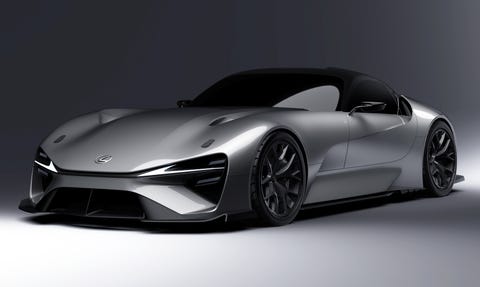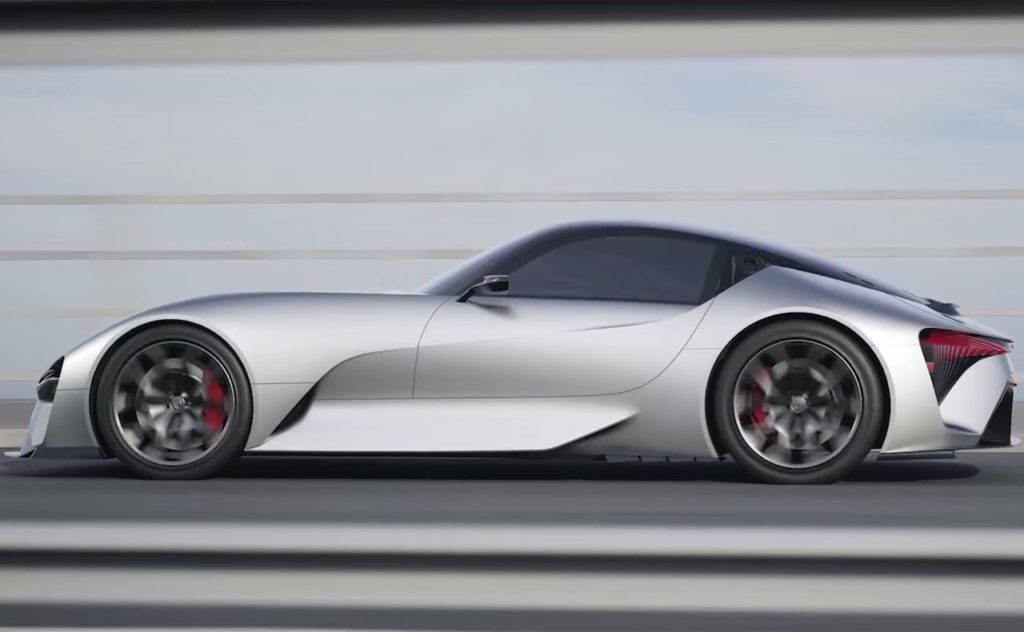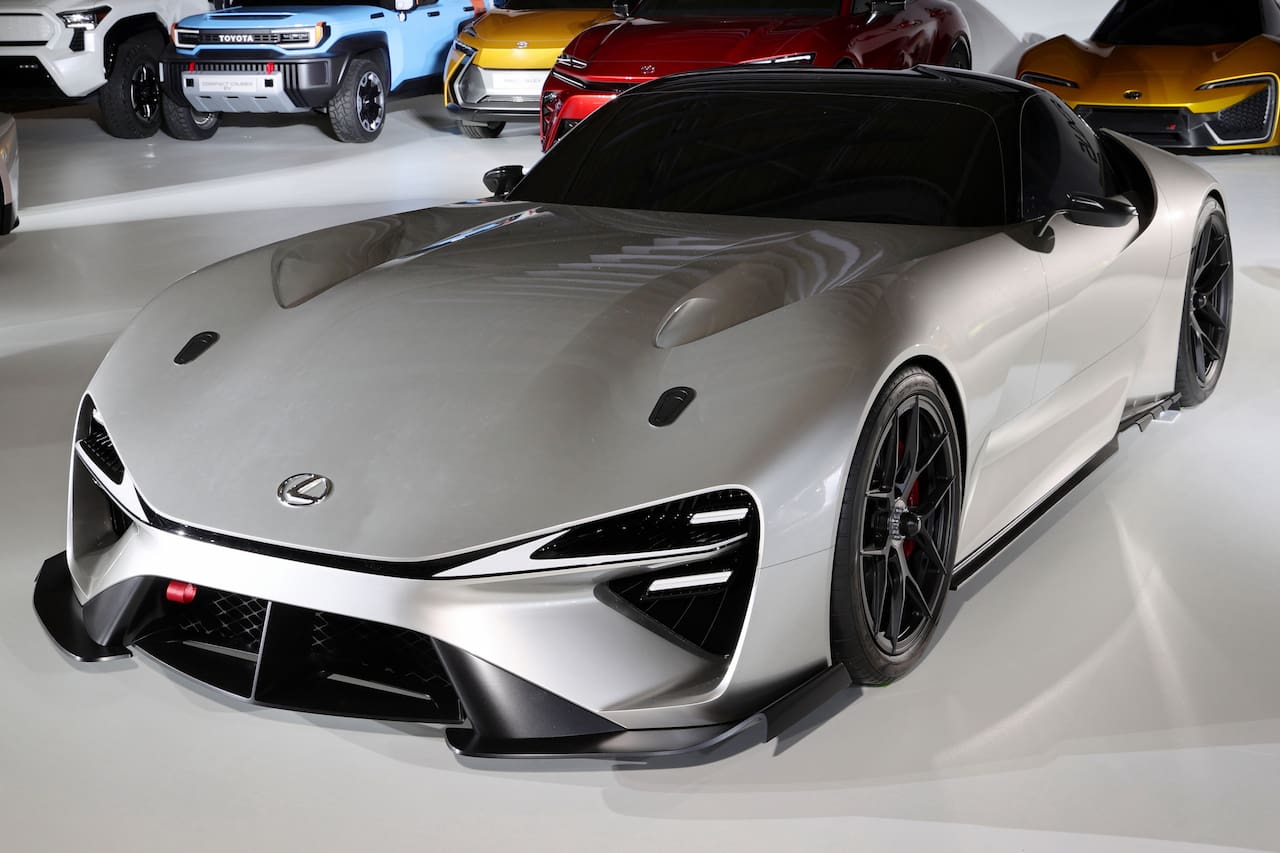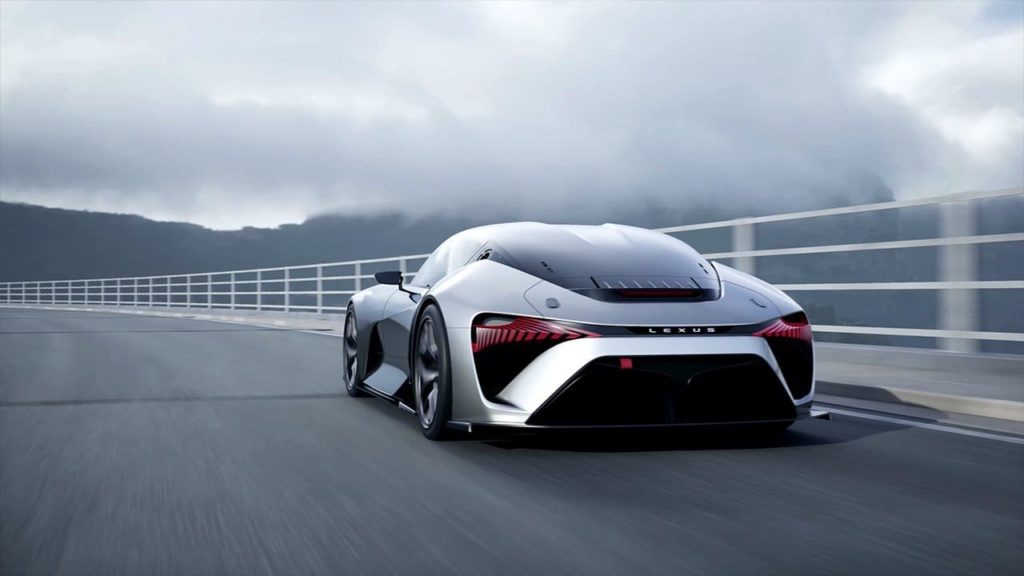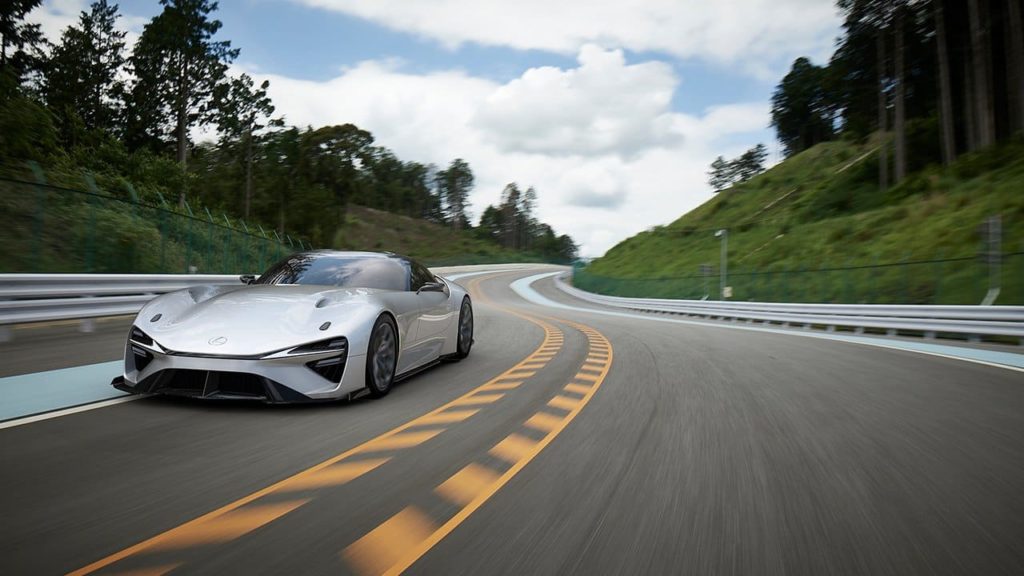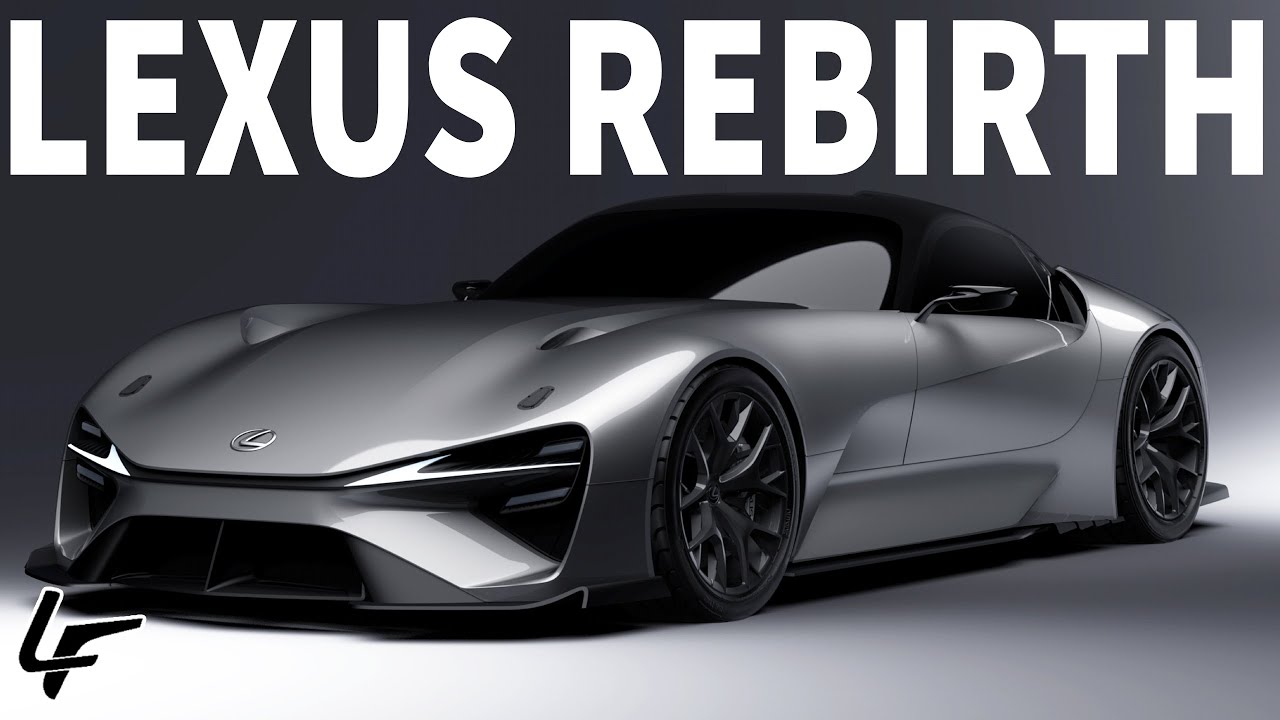2025 Lexus EV Supercar | Lexus is working on an electric supercar that will be the successor to the LFA and will be released in 2030.
Back in the early 2010s, Lexus produced an epic halo sports car called the LFA. It was expensive for a Lexus, with a starting price more in line with a Ferrari. The brand only built 500 of them in total.
Packing a naturally-aspirated 4.8-liter V10, the LFA is widely regarded as one of the best-sounding road cars ever built. These days, prime used examples can fetch more than $1 million in today’s market.
Well, it just so happens that — after years of rumors hinting at its return — the LFA is getting a revival, albeit in a slightly unexpected form: as an electric car.
During Toyota’s EV plans presentation, Lexus noted they are building a new battery-electric sports car with the “driving taste” and “secret sauce” of the LFA. No word yet about the noise, but hey, they’re doing great things with speakers these days.
Lexus noted that the new 2025 Lexus EV Supercar will have a low two-second 0-60 mph time. They also said that the target range is 435 miles — although to be fair, that number may be less when using the tougher EPA standards rather than those used in Japan.
Lexus has said the new sports car may use solid-state battery technology. Toyota is reportedly working on those solid-state batteries, which would be safer, more durable, and more energy-dense than current EV batteries.
The major benefits of solid-state batteries? You can get more range out of the same size battery pack. So manufacturers could either add range to current EVs or keep the same range but reduce vehicle weight considerably. The other key benefit is charging. A solid-state battery would be able to charge much more quickly than a conventional battery.
A production electric version of the 2025 Lexus EV Supercar (LFA) could take a while. Lexus won’t debut its first EV, the RZ, until later this year. There have been rumors from Japan about Lexus launching a new LFA in 2025…but those same rumors have that LFA packing twin-turbo 4.0-liter V8 with a plug-in hybrid.
Toyota has pledged to get its first solid-state battery on the road by 2025. But that’s likely to be in a hybrid, rather than a pure electric car.
The sophisticated exterior of the concept isn’t overselling the upcoming flagship Lexus model. The performance will be just as its vigorous, ready-to-attack exterior. Sato said that the “(0-100 km/h or 0-62 mph) acceleration time will be in the low 2-second range.”
The driving range will be just as impressive – more than 700 km (435 miles). Plus, Lexus is exploring the possibility of using solid-state batteries in the car, which could make it safe and extend its range and durability.
Sato says that electric motors are the best solution for Lexus cars when it comes to powertrain types. In a Q&A session after TMC announced its BEV strategy on 14 December 2021, he said that the responsiveness, the smooth acceleration and deceleration, and the quietness they offer is not possible with an internal combustion engine.
Plus, the performance electric motors could offer might not be possible with engines, he added. That’s something that would especially matter in a supercar like the potential LFA successor.
As more information becomes available on the 2025 Lexus EV Supercar, we’ll update this story with more details about:
- Engine, Transmission, and Performance
- Fuel Economy and Real-World MPG
- Interior, Comfort, and Cargo
- Infotainment and Connectivity
- Safety and Driver-Assistance Features
Photos
